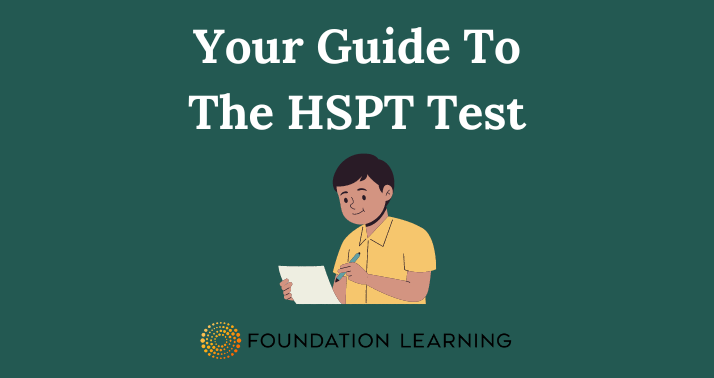Why Should I Take the HSPT?
As you consider your options for high school, taking the HSPT opens doors to receiving a high-quality education at these selective schools. Here are the top reasons why you should take the HSPT.
1. Gain Admission to Top Private High Schools
The HSPT allows you to apply for admission at many prestigious private high schools. These schools often have rigorous admissions standards, small class sizes, innovative academic programs, and high college acceptance rates.
Even if you have good grades, many selective high schools still require HSPT scores. The exam tests critical thinking skills beyond what grades alone can show. Strong scores open up choices for your high school experience.
2. Get a Head Start on College Prep
Private high schools that use the HSPT focus heavily on college preparation. Their curriculum goes deeper, teaches you how to write a good essay, provides SAT/ACT prep classes starting freshman year, and works closely with students on the college application process.
Here is a list of some of the top private high schools that use the HSPT for admissions:
By attending one of these high schools, you immerse yourself in an environment with the resources and support to get you college-ready by the time you graduate.
3. Smaller Classes and More Attention
HSPT high schools typically have small class sizes, averaging 15–22 students versus 30+ students in public schools. This means you get more personalized attention and support from your teachers. When teachers can give focused help to each student, it translates to well-rounded academic outcomes and preparation for higher education.
4. Innovative Academic Programs
The HSPT provides opportunities to enroll in high schools with specialized academic programs you won’t find at most public schools. For example:
- Cutting-edge STEM programs with advanced computer science, robotics, and engineering courses
- In-depth humanities and liberal arts curriculums
- Immersive language programs to achieve fluency in multiple foreign languages
- Hands-on business and entrepreneurship tracks
- Accelerated medical, law, and finance career-focused studies
These innovative programs help you explore passions and prepare for competitive college majors.
5. Develop Critical Thinking Abilities
The HSPT evaluates skills beyond academic knowledge, testing your critical thinking abilities in many areas. Mastering these skills, along with the test-taking experience, gives you an advantage for college entrance tests. Strong critical thinking is also valuable for college studies and career success.
6. Opportunity for Scholarships
By taking the HSPT and applying for private high schools, you open up potential scholarship opportunities that can reduce your overall tuition costs. Schools award these scholarships based on HSPT scores and other admissions criteria.
Even if you don’t score highly enough for a full scholarship, strong HSPT scores make you eligible for partial scholarships, lowering the tuition burden. Given the high yearly tuition at these schools, every little bit of scholarship money helps.
7. Take Control of Your Future
At the end of the day, the HSPT provides an opportunity to take control of your academic future. The exam is a stepping stone to attending a high-performing high school that best matches your abilities and interests.
Instead of just defaulting to your local school, taking the HSPT puts you in the driver’s seat to pursue new directions for your all-important high school years.
The HSPT requires diligent preparation, but the personal growth, college-readiness foundation, and school options it provides are invaluable. For motivated students looking for extra help with the HSPT, consider enrolling with one of our tutors to ace the test with confidence!





.svg)


